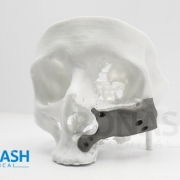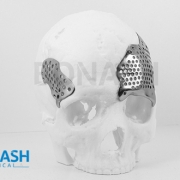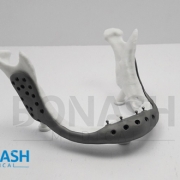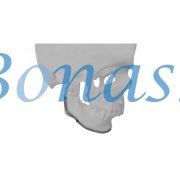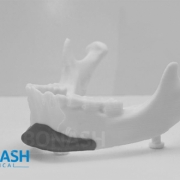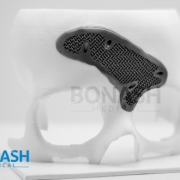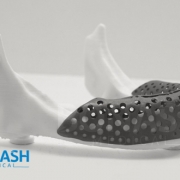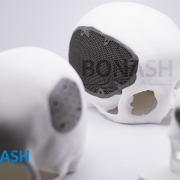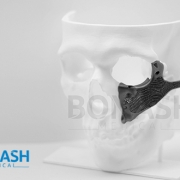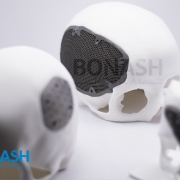Patient Matched Implant for Cranioplasty
Patient Matched Implant for Cranioplasty
To have a patient matched implant for cranioplasty, the customizable nature of Patient specific implant lends itself to manufacture, ship, and autoclave at a competitive price point. Custom made implants benefit from many of the same advantages as Digital Surgery Planning (for example, CMF reconstruction) in that the advanced preparation can reduce operating room time, reduce risk, and help improve surgical outcomes.
Aesthetically the titanium mesh needs to be hand-bent to best fit the patient, but continual bending of titanium can contribute to micro-fractures that may compromise material strength. Work-hardening of titanium can lead to implant failure, but in the case of custom made implants, the surgeon could avoid the risk of work-hardening by selecting a 3d printed implant.

